For love and money: how talking about finances can unlock successful relationships
Discover how talking about finances can unlock successful relationships. By: Damona Hoffman, dating and relationship coach
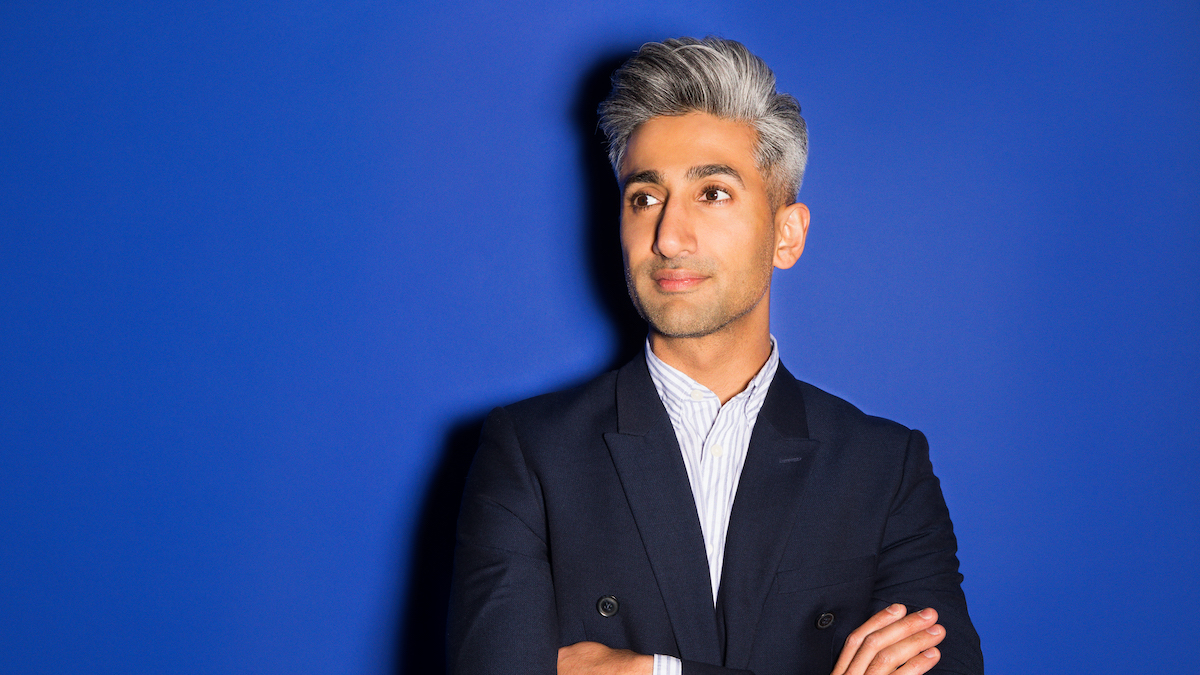
Wise is a new way of managing your money internationally for a fraction of the price of a bank or PayPal. This is the first of our Lives Without Borders series, in which we speak to people whose careers and lifestyles have transcended borders.
I don’t know whether there is any way of preparing anyone for the huge success of a show like Queer Eye. It feels really bizarre to go from nobody knowing who you are to being known globally. That’s something that you don’t get used to easily.
The other guys all had TV experience, but I had never done anything on screen, so I just went from zero to 60. I noticed people staring a little in the first couple of days after it aired, but I distinctly remember thinking life is definitely not the same anymore when Jon Bon Jovi stopped me and asked for a picture. I couldn’t believe that a global superstar like Jon Bon Jovi actually knew my name and watched our show, and I’m just little Tan from Doncaster in England.
When we started Queer Eye, it immediately felt important and emotional, like we were doing something more than just reality TV.
I live in Salt Lake City, Utah, which I absolutely love. I escape there at every opportunity so that I remain the same person I’ve always been. I don’t want to get caught up in all this fame stuff. I love my job, but I do see it as a job, and the fame side of it is just a by-product of it. Fame offers wonderful perks and it’s given me a life one could only dream of, but it’s not something that I desperately push for, and I know it will probably be very short-lived.
The nice thing is that I’ve kept the same circle of friends who I’ve had for about 10 years. They are the ones who are constantly texting me when I’m out and about doing stuff that’s just bizarre. What the hell are you doing at the Emmys? They’re the ones who keep me grounded and remind me that this is all completely ludicrous and that it’s not real life.

I didn’t go into Queer Eye to become famous. I went into this show with an agenda to hopefully dispel some concerns that some may have with people like me.
I think on Queer Eye, we are fighting for acceptance, whereas on the original show, Queer Eye For The Straight Guy, it was about fighting for tolerance. I definitely don’t think that it’s possible to achieve acceptance in two seasons on the show, but we’re striving for it. Whether it is fashion, hair or culture, all five of us use our expertise to have a much larger and more emotional conversation so that people do accept us as real human beings.
We talk about our lives, religion, relationships or our desire to have children. We’re not shying away from any of those regular conversations. America and the rest of the world wasn’t ready for that 15 years ago, and they probably didn’t want to hear about our desire to just be treated as normal. People are people, and hopefully we are shedding a light on the fact that we are people too.
It’s definitely not my job to be fighting against prejudice, but I do see it as a responsibility. I took this show because I wanted to be seen and I wanted people to understand people like me. I don’t want to have to hide any of myself just because I may make somebody uncomfortable.
I think the majority of the people we meet on the show have met gay people before and if they haven’t, they at least have exposure to them on TV, but they’re often more surprised that a South Asian man is in their home.
There are a lot of Caucasian gay men on TV, but they represent themselves rather than their whole community. For me it’s different, because I’m one of the very few out South Asian people on TV, so I feel added responsibility to represent these marginalised communities well.
I’m glad that I was raised in South Yorkshire, because I think it helped me to be patient and considerate when people said disgusting things to me and didn’t understand who I was. I look back on that kid in Yorkshire and think – times were hard, but you got through and now you’re in a position to hopefully make things a little better for future generations.
I was never massively inspired by pop stars who were gay, because their lives are a different kind of performance, so it was the likes of Will and Grace and Ellen who really encouraged me. I experienced no homophobia growing up, which is strange, because I do think I’m effeminate. Having said that, I wasn’t overly effeminate as a kid, so nobody really knew. It was never a homophobic issue I had with my peers, it was usually a racial issue. It didn’t happen often, but it was certainly often enough for me to always remember my place.
I’ll never forget Tom Jackson, the truck driver we featured on the first episode, saying – ‘You might make me look a little better, but you can’t fix ugly.’ It was heartbreaking. The majority of my role on the show is about improving their self-esteem, so putting pretty clothes on somebody is completely secondary. We’re trying to encourage a better self-image.
If I’ve made no effort when I put something on in the morning, it makes me feel like nobody should look at me, care for me or take the time to understand me. If I make an effort I feel better about myself, and when I look in the mirror that has a knock-on effect throughout my day.
It works well for me to be very calm and diplomatic with our ‘heroes,’ who are the subjects of the show.
I think they are probably willing to listen to me because I’m the only non-American and I’m a little more open about my opinions than the other guys are. Americans aren’t used to being so direct, and the truth is sometimes painful to hear. I’ve been living in America for 10 years, and my honesty has got me into trouble on countless occasions.
Gianni Versace once said: ‘Don’t make fashion own you, but you decide what you are and what you want to express by the way you dress and the way you live.’ It would make no sense to me to put Tom Jackson in a cropped sweatshirt with a cross body bag. Yes, it’s super-hot right now, but it doesn’t make sense for the life that he lives, where he lives and the people that he lives with.
My style is very much a representation of me that fashion could never convey. If I wear designer fashion, it’s not my style, it’s Donatella’s or Tom Ford’s. Style is about being true to yourself and what you want to portray to the world. The majority of my own wardrobe is made up of classic pieces that I know I can wear for 15 years because they never go out of style. I always advise people to build the classics first and then break the rules after that.
Freedom is very important to me, because I hate being told what to do. I really struggled when I worked for other people, mainly because I always thought my bosses were morons. Quite honestly, I usually think I’m right, so I was destined to be an entrepreneur.

I ended up starting my own fashion business when I was 25 because I lost my American working visa and had to return to the UK.
I was already married to my husband at that point and I couldn’t get a green card because gay marriage wasn’t legal here. I knew that if I was earning enough money in the US and hiring a certain number of employees, I could then apply for a green card. It was really my only option at that point.
I lived in America part-time for six years, so I’d do three months here, six months in England and then three months back in the States. When I was in England, I’d do a regular day job as a receptionist or a data inputter, and then as soon as I got off work, I would head back home and the American market would be open and I would start working on my own business.
My lowest point was probably in Year One when I couldn’t afford to go out for coffee with friends. They’d want to meet for dinner, and I’d suggest coffee, but really I was thinking – I can’t afford that $2.50 for my coffee. The stress of money was sometimes horrible, but I always loved the job and I put every penny I had into the business.
I made some stupid decisions and purchased shoes that were way too expensive, but other than that I always had a goal in mind to create a business. I took jobs and made sure that I learned as many aspects of retail and business operations as I could so that I would be able to do those jobs myself and not have to hire employees. I was no dumb-dumb.
When I was a kid, I always used to hear my dad say – Learn it all, do it all.
It sounds like something from some nonsense business textbook, but he didn’t get it from a textbook. It was something that he truly believed in, and I swear by it now. Before I started my business, I wanted to work for as many companies as possible so I could learn the things I needed to learn and then take that knowledge on to my own business and do it myself.
I’ve worked as a consultant for some smaller start-up businesses in the last few years, and when they struggled financially it was usually because they hired too many people and they didn’t really know how to execute every facet of their business. I did, and I think that is what made my company successful. I was my only employee for the first three years. It was difficult, but I knew how to do everything within my business myself.
I was working with major global retailers, but they definitely wouldn’t have purchased from me if they knew it was just me running the company at that time. I didn’t even have an office – I was working out of my apartment – but there was no reason for them to know.
Running my own business has really given me a good perspective on money. I use my money wisely. Even now that I have the wonderful luxury of showbiz money, my experience with money has dictated how I use it. I don’t spend lavishly. I don’t buy designer clothes or go to fancy restaurants. I’m a boy from South Yorkshire, so the glitz and the glam isn’t the thing that gets me going. It may sound corny, but it’s about knowing that my bills are covered and that my husband and my family are taken care of.
I was always very conscious that fashion is a notoriously risky business, and I knew that I wanted to be in and out within 10 years. My dream was to retire by the time I was 45 or 50, so I made sure I saved and focused on my goal. I had a plan, and I retired at the age of 33, which is how I got Queer Eye. They knew I had retired and I was available, so I got a bonus career out of it.
As told to Jonathan Wingate, exclusively for Wise. Photography by Elaine Torres.
*Please see terms of use and product availability for your region or visit Wise fees and pricing for the most up to date pricing and fee information.
This publication is provided for general information purposes and does not constitute legal, tax or other professional advice from Wise Payments Limited or its subsidiaries and its affiliates, and it is not intended as a substitute for obtaining advice from a financial advisor or any other professional.
We make no representations, warranties or guarantees, whether expressed or implied, that the content in the publication is accurate, complete or up to date.

Discover how talking about finances can unlock successful relationships. By: Damona Hoffman, dating and relationship coach
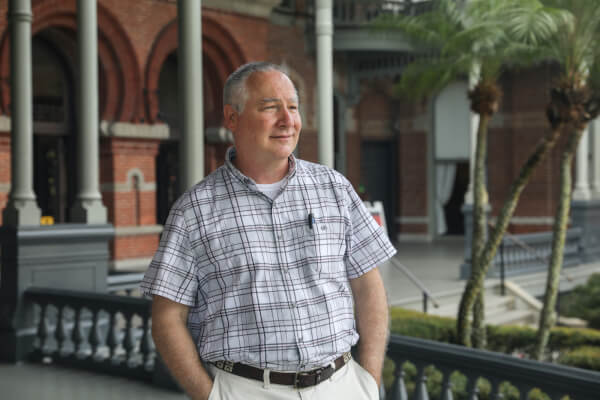
After getting his doctorate in the UK, Sydney-born Tony Erben moved to the US, where he now heads the Department of Education at a university in Florida. As...
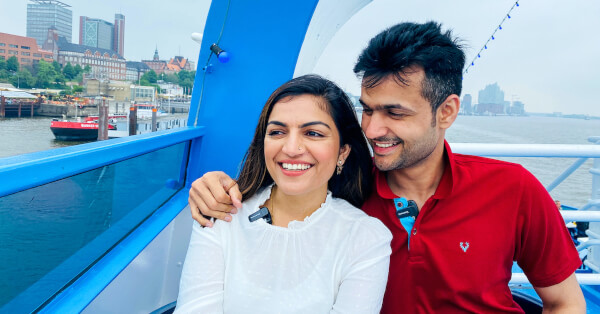
Shilpa and Sachin relocated from India to Europe, where they came up with the idea for their popular YouTube channel “Flying Abroad,” which shares tips and...

After working in Japan and the United States, Creative Director Ben Sheppee returned to London to open a studio and develop his business. His innovative work...
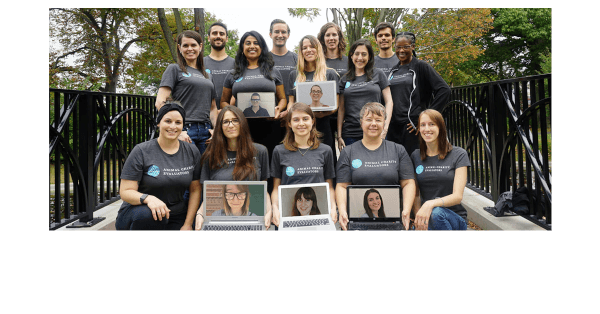
Seven years into her career as an engineer, Gina Stuessy decided she wanted to have more of an impact on the world. So she took the plunge, quit her job, and...
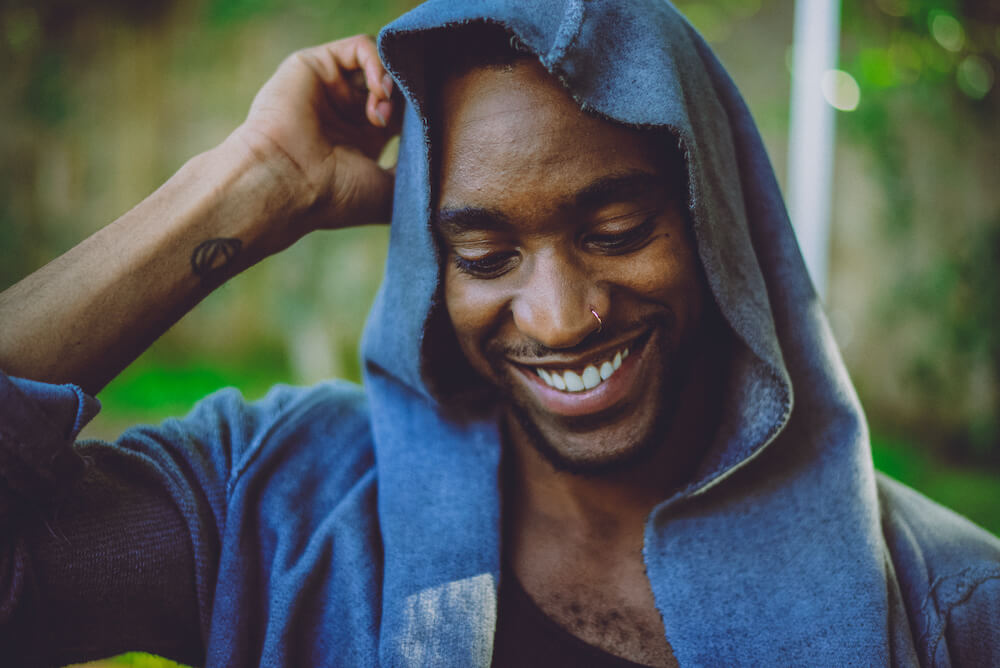
After spending almost a decade working in fashion and the movie industry in Los Angeles, Dominique V. Richardson sought a change. He packed up his bags and...